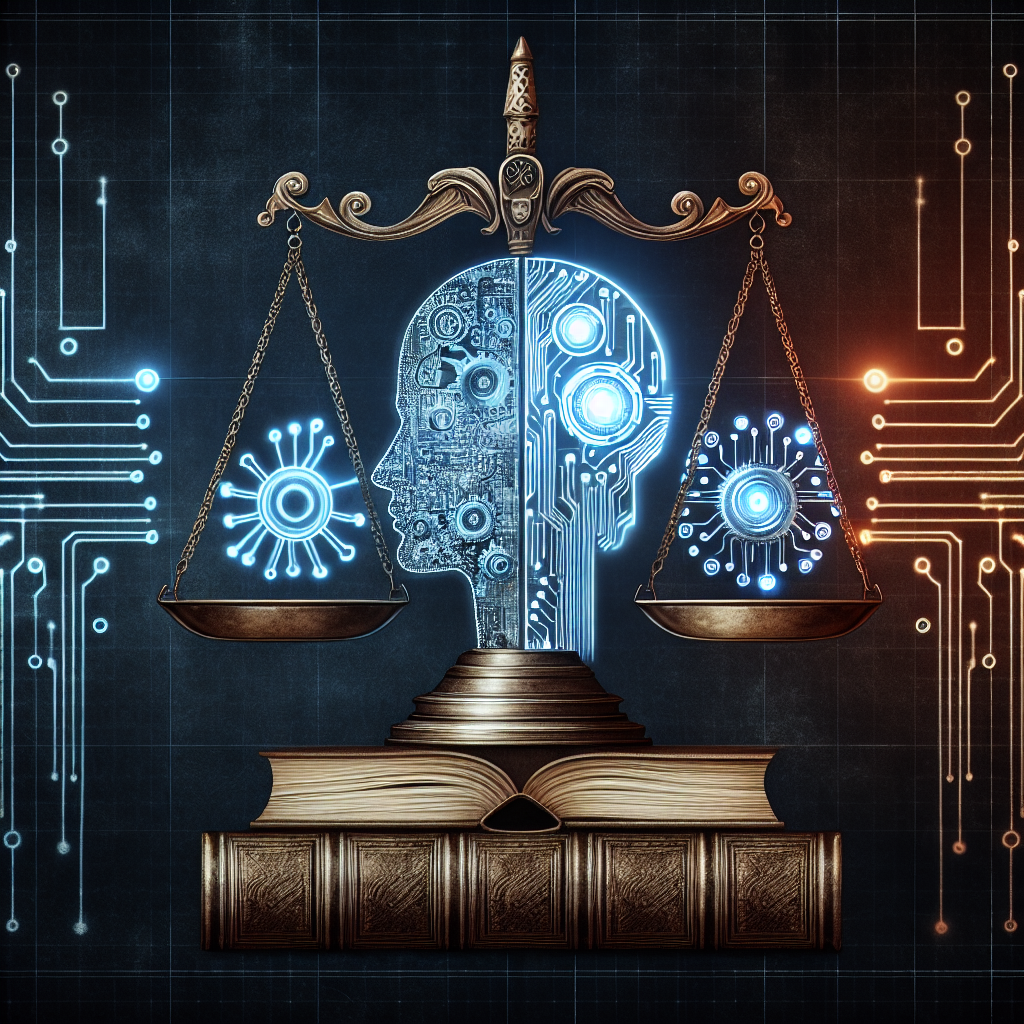Artificial Intelligence (AI) has become an increasingly important tool in the legal industry, with its ability to process vast amounts of data, identify patterns, and make predictions. However, the use of AI in legal decision-making raises important ethical considerations that must be carefully examined.
One of the main ethical considerations of AI in legal decision-making is the potential for bias. AI systems are only as good as the data they are trained on, and if that data is biased, the AI system will also be biased. This can lead to unfair outcomes for certain groups of people, particularly marginalized communities who are already disadvantaged in the legal system. For example, if an AI system is trained on data that is biased against a particular racial group, it may recommend harsher sentences for members of that group, perpetuating existing inequalities in the justice system.
Another ethical consideration is transparency. AI systems are often seen as “black boxes,” meaning that their decision-making processes are not easily understood by humans. This lack of transparency can make it difficult for individuals to challenge or appeal decisions made by AI systems, leading to concerns about accountability and due process. In the legal context, where decisions can have serious consequences for individuals’ lives, transparency is crucial to ensuring that decisions made by AI systems are fair and just.
Additionally, there are concerns about the impact of AI on the legal profession itself. As AI systems become more advanced and capable of performing tasks traditionally done by human lawyers, there is a fear that AI will replace human lawyers, leading to job losses and changes in the nature of legal practice. This raises questions about the ethical implications of using AI to make decisions that have traditionally been the purview of human judgment.
Despite these ethical considerations, there are also potential benefits to using AI in legal decision-making. AI systems have the potential to increase efficiency and accuracy in legal processes, reducing the time and cost involved in resolving legal disputes. AI can also help to identify relevant legal precedents and statutes more quickly and accurately than human researchers, leading to more informed and consistent decision-making.
To address the ethical considerations of AI in legal decision-making, it is important for policymakers, legal professionals, and AI developers to work together to develop guidelines and best practices for the use of AI in the legal industry. This may include requirements for transparency and accountability in AI systems, as well as mechanisms for monitoring and evaluating the impact of AI on legal decision-making.
Frequently Asked Questions (FAQs)
Q: How can we ensure that AI systems are not biased in legal decision-making?
A: One way to address bias in AI systems is to carefully examine the data used to train the system and to implement processes for identifying and removing biased data. Additionally, it is important to regularly audit AI systems for bias and to have mechanisms in place for correcting any biases that are identified.
Q: What are some examples of bias in AI systems used in legal decision-making?
A: One example of bias in AI systems used in legal decision-making is the use of historical data that reflects existing inequalities in the legal system. For example, if an AI system is trained on data that shows that members of a particular racial group are more likely to commit crimes, the system may recommend harsher sentences for members of that group, even if the individuals in question are not more likely to reoffend.
Q: How can transparency be achieved in AI systems used in legal decision-making?
A: Transparency in AI systems can be achieved through a variety of means, such as providing explanations of how the system reaches its decisions, allowing individuals to appeal decisions made by the system, and making the decision-making process more understandable to non-experts. Additionally, it is important to have mechanisms in place for auditing and monitoring AI systems to ensure that they are operating in a fair and ethical manner.
Q: What are some potential benefits of using AI in legal decision-making?
A: Some potential benefits of using AI in legal decision-making include increased efficiency and accuracy in legal processes, reduced costs and time involved in resolving legal disputes, and improved access to legal information for individuals and small businesses. AI can also help to identify relevant legal precedents and statutes more quickly and accurately than human researchers, leading to more informed and consistent decision-making.
In conclusion, the use of AI in legal decision-making raises important ethical considerations that must be carefully examined and addressed. While there are concerns about bias, transparency, and the impact on the legal profession, there are also potential benefits to using AI in the legal industry. By working together to develop guidelines and best practices for the use of AI in legal decision-making, we can ensure that AI systems are used in a fair and ethical manner that upholds the principles of justice and due process.

